Casio G-SQUAD PRO GSW-H1000 review: Wear OS multisport watch for hypebeast athletes
The Casio G-SQUAD PRO GSW-H1000 might not be the most accurate multisport watch, but it looks rad and has loads of casual features to make up for it
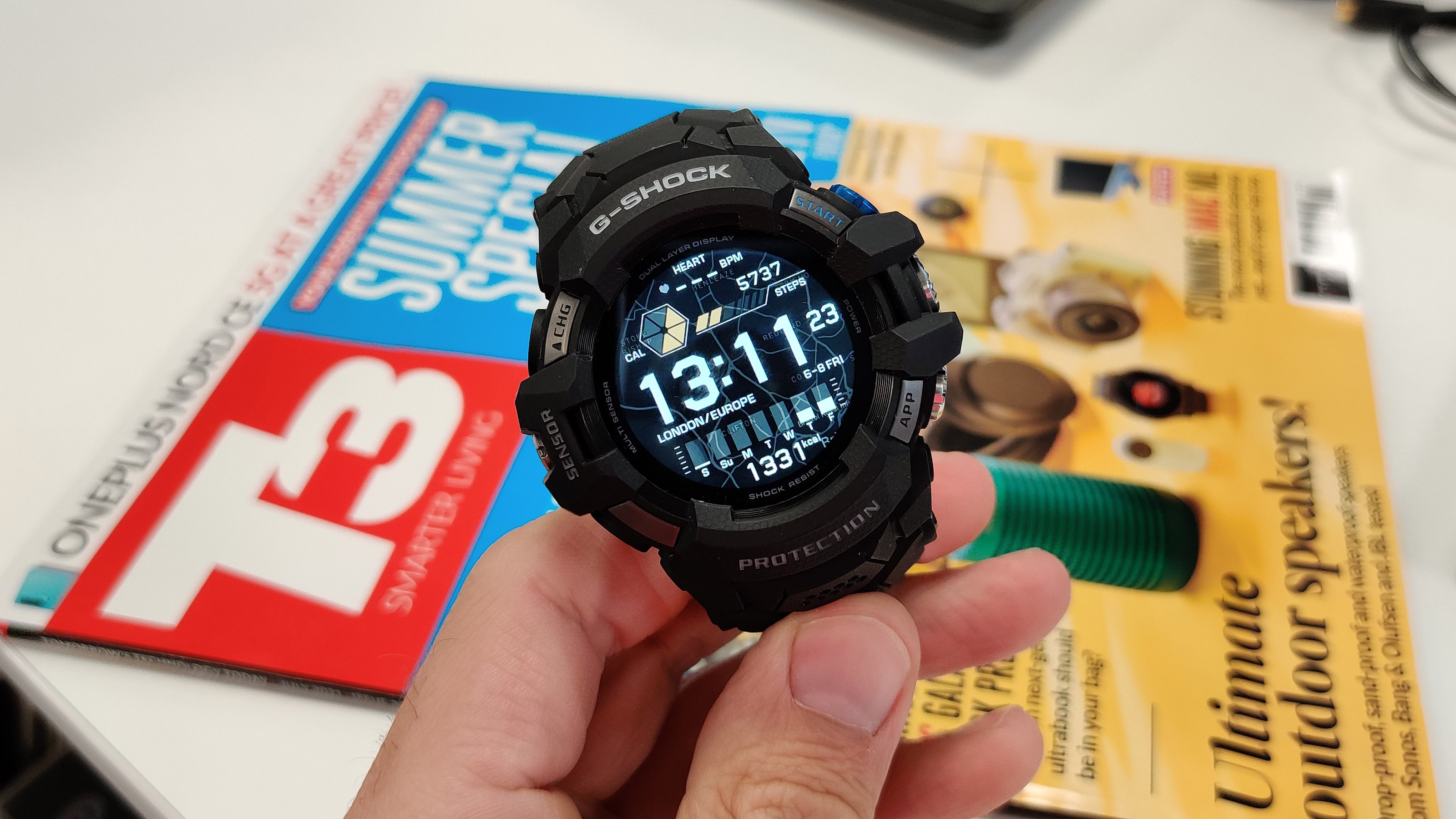
The Casio G-SQUAD PRO GSW-H1000 is essentially an ultra-tough fitness tracker that enables its wearers to keep track of their health and fitness stats in style. It won't rival Garmin or Polar running watches in terms of accuracy, but at least it doesn't pretend it wants to.
-
+
Iconic G-SHOCK design
-
+
Tough as hell
-
+
Combines form and function relatively well
-
+
Dual-layer display is an interesting gimmick
-
-
Heavy
-
-
Battery life is so-so
-
-
Accuracy issues
-
-
Workout data fields are too small
-
-
No 'click' feeling on button press
Why you can trust T3

Casio G-SQUAD PRO GSW-H1000 review TL;DR: this Wear OS-powered multisport smartwatch is not the most accurate fitness wearable in the world, but at least it has loads of clever smartwatch features and is also rather pleasing to the eye (especially if you're into G-SHOCK watches).
It's been a while since I reviewed the Casio G-Shock GBD-H1000, one of the first attempts from Casio to enter the running watch market. And despite not being blown away by its accuracy, I really liked how the watch looked and saw great potential in the Casio Move app.
This is probably the reason why I was looking forward to reviewing the Casio G-SQUAD PRO GSW-H1000. This isn't just a running watch but a multisport watch that can track various sports using its many sensors. The watch runs Wear OS, Google's operating system for wearables, so I expected many features I saw in the Suunto 7 to also appear in the G-SQUAD PRO GSW-H1000.
But does the watch deliver the premium multisport watch experience it promises? Is it any good for tracking workouts? Let's find out.
Casio G-SQUAD PRO GSW-H1000: price and availability
The Casio G-SQUAD PRO / MOVE PRO GSW-H1000 is available to buy now at Casio UK and Casio US.
Recommended retail price is £599/$699.
There is no information on AUS release yet.
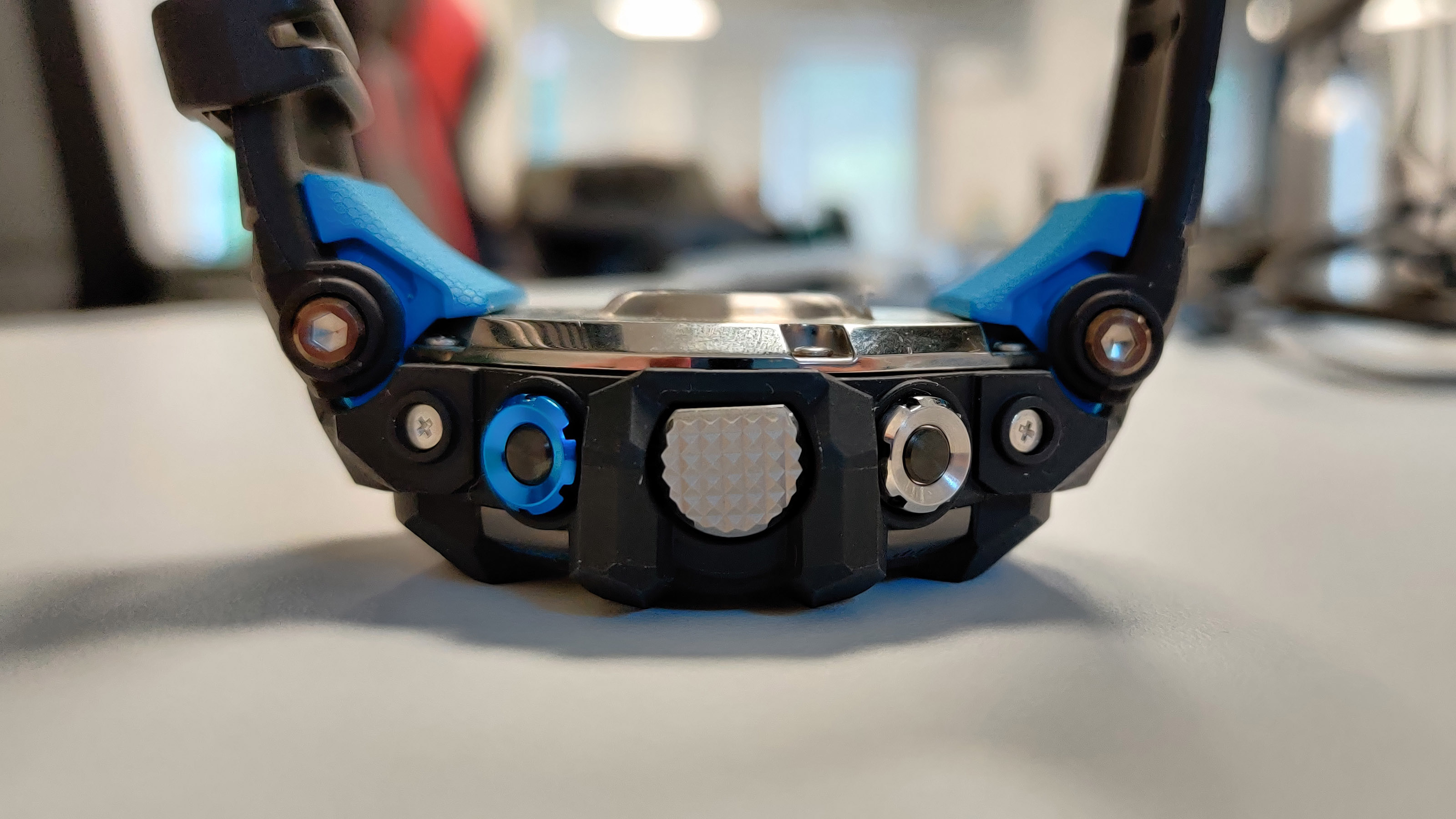
Casio G-SQUAD PRO GSW-H1000: design
I find that people either really like or absolutely hate the aesthetics of G-SHOCK watches. I'm in the first group: I adore the robustness of the watch and the way it looks like a toy watch that was designed by a 5-year old who was asked to come up with a 'badass' watch design.
However, the rough interior serves other purposes than just looking hardcore: the G-SQUAD PRO GSW-H1000 is a tough cookie. It's water-rated to 200 ATM, which is way higher than other smartwatches today, including the resilient Coros Vertix (150 ATM) and Garmin Fenix 6 Pro (100 ATM). The watch is also shock-resistant, although this shouldn't come as a surprise, given the amount of rubber surrounding the display.
Speaking of display: the G-SQUAD PRO GSW-H1000 has a 1.32-inch Colour TFT LCD (320 x 300 pixels) touchscreen display and a monotone LCD screen, the latter of which operates even when the battery is completely dead. I loved this feature as I was able to check the time even with a completely flat battery. Nice!
Similarly to the Casio G-Shock GBD-H100, the G-SQUAD PRO GSW-H1000 features a 'non-pivoting urethane band that's dotted throughout for extra ventilation under the strap. It's far from being uncomfortable, but it's certainly not something I can tolerate on my wrist 24/7.
Thankfully, there is no need to wear the watch all day-round as it doesn't track sleep or recovery, something we'll come back in a bit.
There are three physical buttons on the side of the case with which you can also operate the watch and access different menus. The top one takes you to the workout menu, the middle to the Wear OS menu, and the bottom to the Casio menu. My only grief was that the press sensation was inferior: sadly, the buttons don't 'click' when pressed.
The Casio G-SQUAD PRO GSW-H1000 weighs approx. 103 grams (including wristband).
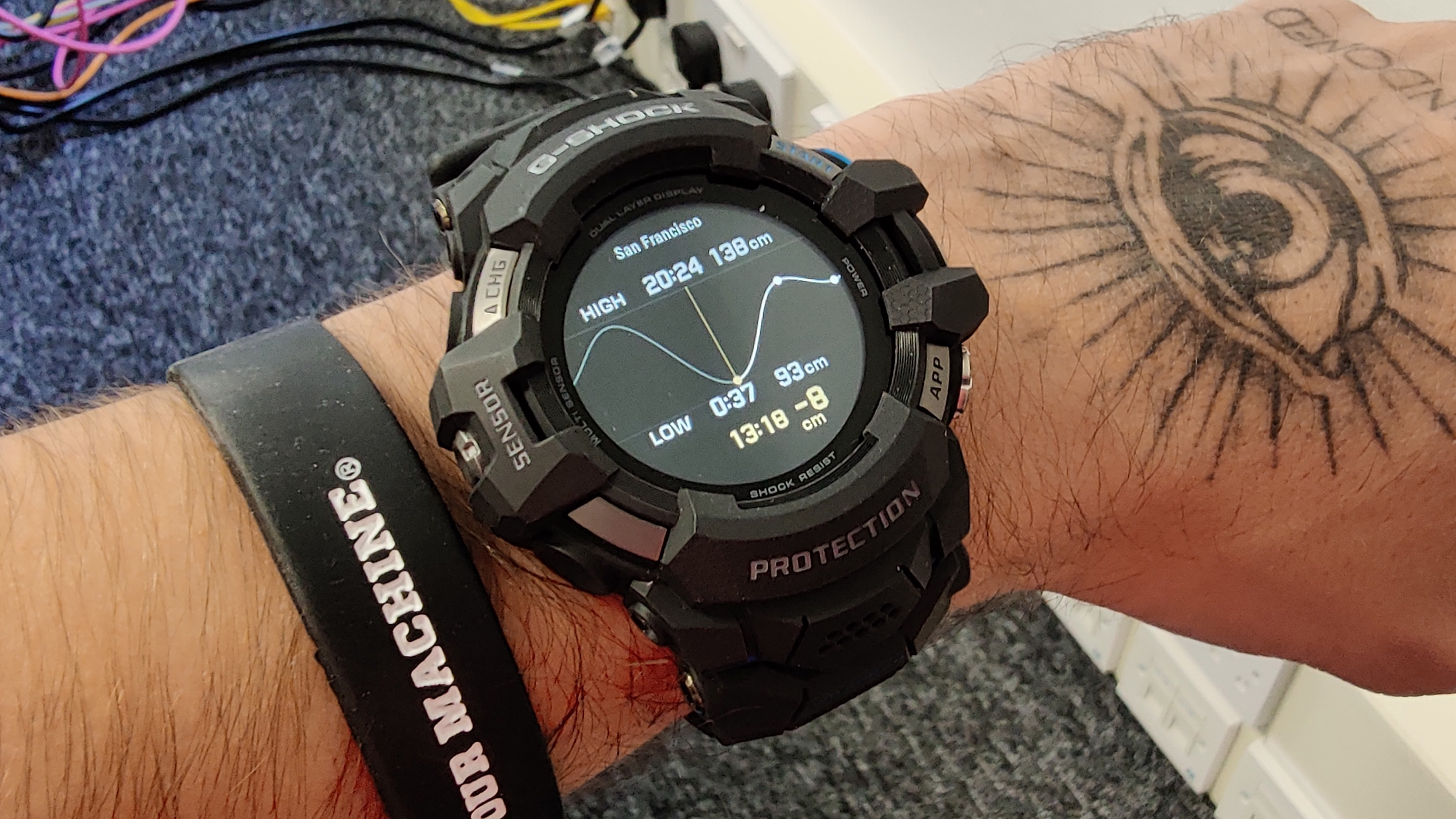
Casio G-SQUAD PRO GSW-H1000: operating system(s)
The G-SQUAD PRO GSW-H1000 runs a hybrid operating system that combines Casio's own software with Wear OS. The result of this tinkering is not a seamless user experience, especially if you haven't used a similar watch before, which I assume will be the case for most people.
As mentioned above, different buttons allow access to different menus, and this is all fine, but some features don't blend well or, in some cases, straight-up ignore each other. One good example is workouts: you can start a workout by swiping the Wear OS tiles and finding the one dedicated to workouts; another way is to press the top button to access the Casio workout menu.
Starting a workout from the Wear OS menu will not register it in the Casio Move app, only in the Google Fit app. But if you start a workout from the Casio workout menu, data will be transferred over to the Google Fit app, as long as the Casio Move app is synchronised with the Google Fit app.
Sounds confusing? It is, but only at first. You could say that a premium watch such as the G-SQUAD PRO GSW-H1000 should provide more straightforward navigation, and I would agree, but I also appreciate that it's not the end of the world. Personally, I would have preferred a watch that runs on Casio's own operating system alone, but I appreciate that might have resulted in omitting most of the cool smartwatch features. You win some, you lose some, as they say.
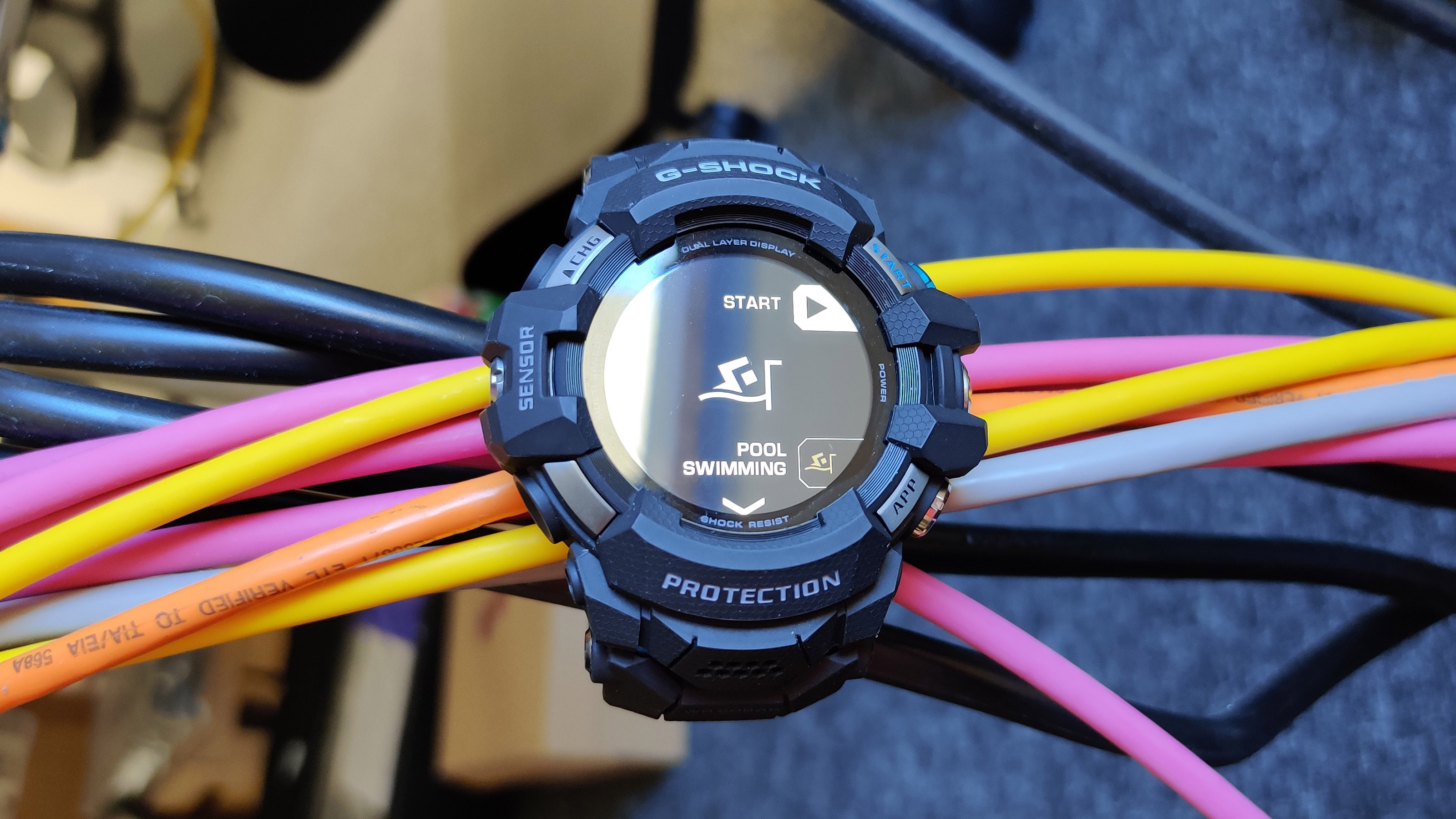
Casio G-SQUAD PRO GSW-H1000: features
Thanks to the inclusion of Wear OS, the G-SQUAD PRO GSW-H1000 comes loaded with Google apps and services, which includes Google Assistant and activity metrics with Google Fit. You get all the perks you might expect from a watch that runs Wear OS, including smart notifications, alarm, breathing exercises and even stuff like a hand wash timer, a feature that baffles me as adults really shouldn't need a timer to know how long they should wash their hands.
One of the unique features is the 'Sensor Overlay' function which "allows users to combine video and still images of their activities with data captured by the watch to create layered visual media to share on social media."
This means that in the Casio Move app, you can combine footage captured with the camera with the sensor data from the watch. Here is a little explainer video:
Is this a useful feature? I wasn't completely sold on this, but I guess Casio at least tried to offer something extra here, so I let them off the hook this time.
More exciting is the map function, which allows you to navigate without your smartphone. The only issue with this feature is that although the touchscreen is not too laggy, finding a certain place on a small screen using your fingers is not easy, especially if you have fingers as big as I do.
You can also access tide graphs, times of sunrise/sunset and more using the Casio G-SQUAD PRO GSW-H1000.
Casio G-SQUAD PRO GSW-H1000: sensors and accuracy
One of the best aspects of the Casio G-SQUAD PRO GSW-H1000 is that it comes fully loaded with different sensors. You get an optical heart rate sensor, built-in GPS chip, magnetic sensor (for the digital compass), pressure sensor (for the barometer/altimeter), accelerometer and gyrometer.
It takes a while for the watch to pick up the GPS signal but once acquired, it keeps track of position relatively accurately. I went for shorter runs (≤ 5k), and the G-SQUAD PRO GSW-H1000 had no problem tracking where I was on the map. You can always double-check the route you took in the Casio Move app.
I guess the heart rate sensor is okay, but I wouldn't trade a COROS Pace 2 or Garmin Forerunner 245 for the G-SQUAD PRO GSW-H1000 for running training. Most of the readings from the watch were way off, telling me my heart rate was in the 'light' zone when in fact, I was almost out of breath.
The compass works fine, although it's worth mentioning that I'm not a big hiker, so I wouldn't know how accurate a digital compass should be. It spins around when I spin, that's the accuracy I need.
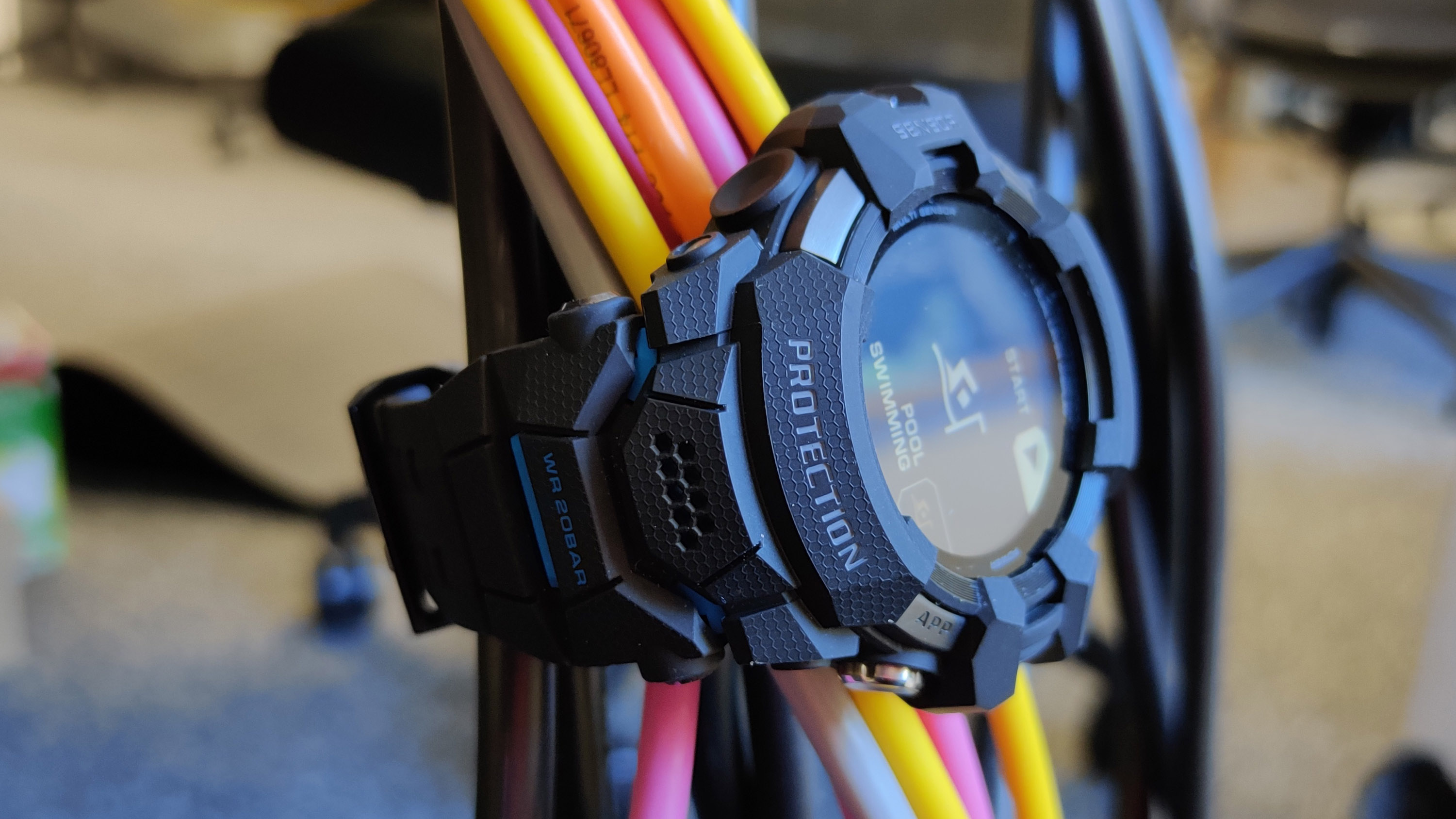
Casio G-SQUAD PRO GSW-H1000: sports tracking
When I spoke to Warren Halliwell, Casio's National Brand Training Officer, about the G-SQUAD PRO GSW-H1000, he mentioned that Casio aimed to provide G-SHOCK fans with a 'functional reference watch' to track everyday fitness activities. What this means is that the G-SQUAD PRO GSW-H1000 was never meant to be an accurate running wearable, more of a device that can sort of measure activities for your records.
There are 15 activities and 24 indoor workout options on the watch, including essentials such as running and cycling but also swimming and elliptical training. I only tried the watch for running, walking, swimming and strength training.
The latter, strength training, I found a bit confusing. You see, there isn't a general workout-tracking mode on the G-SQUAD PRO GSW-H1000, but it has loads of different options for standalone exercises such as bench press, deadlift, bent over row etc. For someone like me who does at least a few exercises per session, starting a new workout on the watch every time I switched exercises felt like a waste of my efforts.
That said, two modes cover the general workout mode, more or less: Custom (rep) and Custom (time). I would have preferred a dedicated workout mode instead of a custom one, but even I admit, this is a nitpicky comment, so please ignore me.
I was pleasantly surprised with the swimming mode, though. Although the Casio G-SQUAD PRO GSW-H1000 doesn't track heart rate underwater, at least it tries to monitor your swimming style (e.g. breaststroke). The workout activity summary in the Casio Move app breaks down the whole session into different styles, which was completely unexpected and therefore provided me with a pleasant surprise. It wasn't super accurate, needless to say, but a good effort nevertheless.
The Casio algorithm also can estimate VO2 max, track monthly distance/time goals, and keeps a 'life log' which includes stats about your daily calories burned, steps taken and distance travelled.
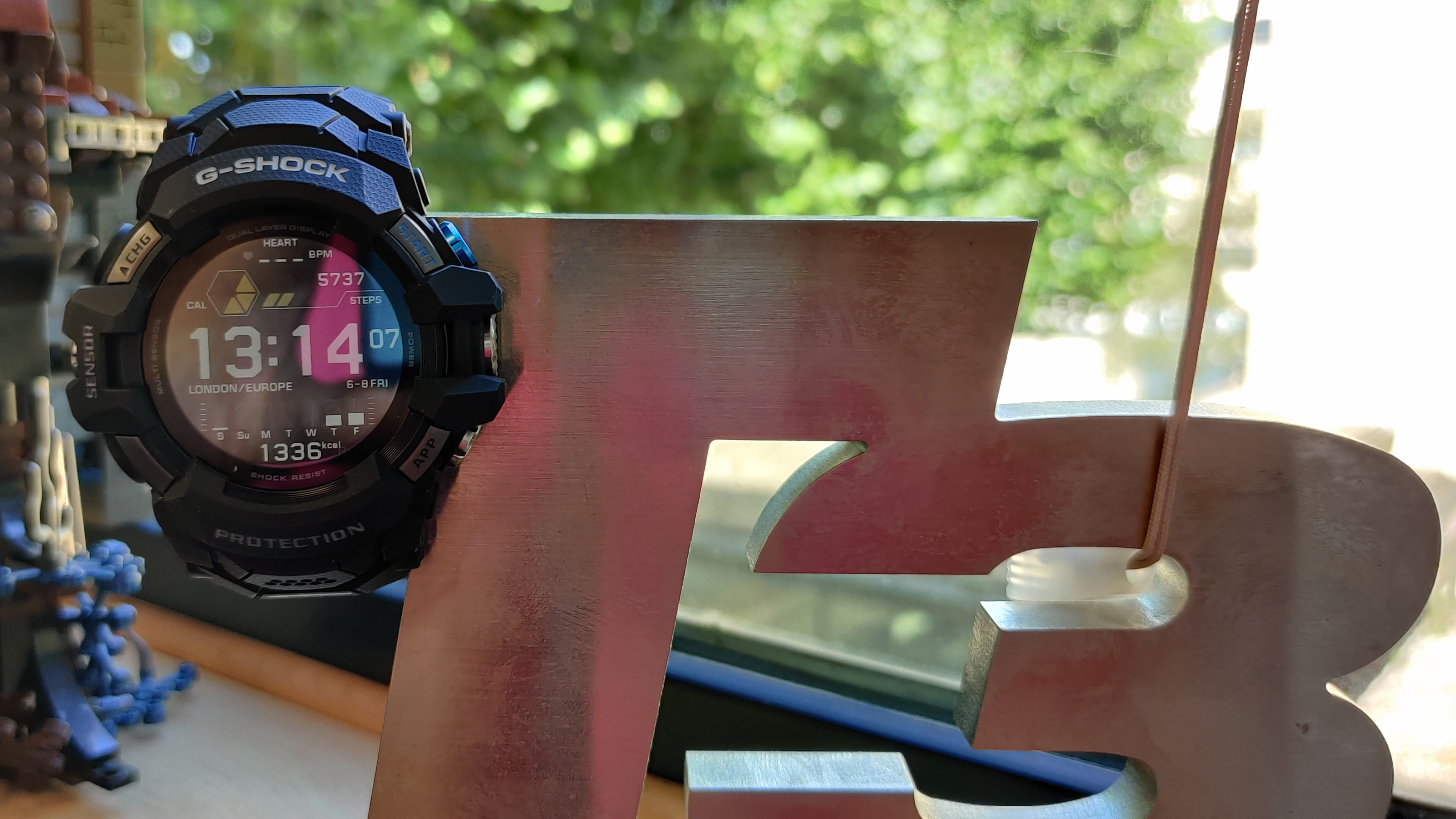
Casio G-SQUAD PRO GSW-H1000: verdict
If the Casio G-SQUAD PRO GSW-H1000 was a dedicated running watch, I might have given it only three stars out of five as it's far from being a capable training partner. The accuracy of the heart rate sensor isn't anything to rave about, and there aren't any recovery tips or sleep tracking on offer here.
Thankfully, the G-SQUAD PRO GSW-H1000 doesn't take itself too seriously. The goofy sensor overlay feature and the heap-load of smart features firmly place the watch in the fitness tracker category and far away from multisport watches such as the Garmin Forerunner 945 or the Polar Vantage V2.
Is this a bad thing? I don't think so. Yes, the £599/$699 asking price makes the Casio G-SQUAD PRO GSW-H1000 the single most expensive fitness tracker on the planet, but you don't pay big bucks for the accuracy here. You shell out top dollar for having a smart G-SHOCK wrapped around your wrist that also can track fitness activities with relative accuracy.
The Casio G-SQUAD PRO GSW-H1000 is not perfect by any means, but I'm sure fashion-forward athletes will appreciate its chunkiness and casual features, not to mention the looks.
Casio G-SQUAD PRO GSW-H1000: also consider
The Garmin Venu 2 is a handsome smartwatch that accurately tracks everyday sports activities (throwing some shade here). The new Elevate V4 sensor, improved health estimations, beautiful screen and long battery life make this multisport watch a must-have. It's not as shock-proof as the G-SQUAD PRO, though.
Want something classier? Have you considered the Withings Scanwatch? It's a beautiful hybrid smartwatch that comes jam-packed with health sensors and features that cater to modern smartwatch owners' needs. However, it is by no means a flawless health wearable, but at least it can provide some interesting insights into sleep and heart health in general.
Sign up to the T3 newsletter for smarter living straight to your inbox
Get all the latest news, reviews, deals and buying guides on gorgeous tech, home and active products from the T3 experts

Matt Kollat is a journalist and content creator who works for T3.com and its magazine counterpart as an Active Editor. His areas of expertise include wearables, drones, fitness equipment, nutrition and outdoor gear. He joined T3 in 2019. His byline appears in several publications, including Techradar and Fit&Well, and more. Matt also collaborated with other content creators (e.g. Garage Gym Reviews) and judged many awards, such as the European Specialist Sports Nutrition Alliance's ESSNawards. When he isn't working out, running or cycling, you'll find him roaming the countryside and trying out new podcasting and content creation equipment.
-
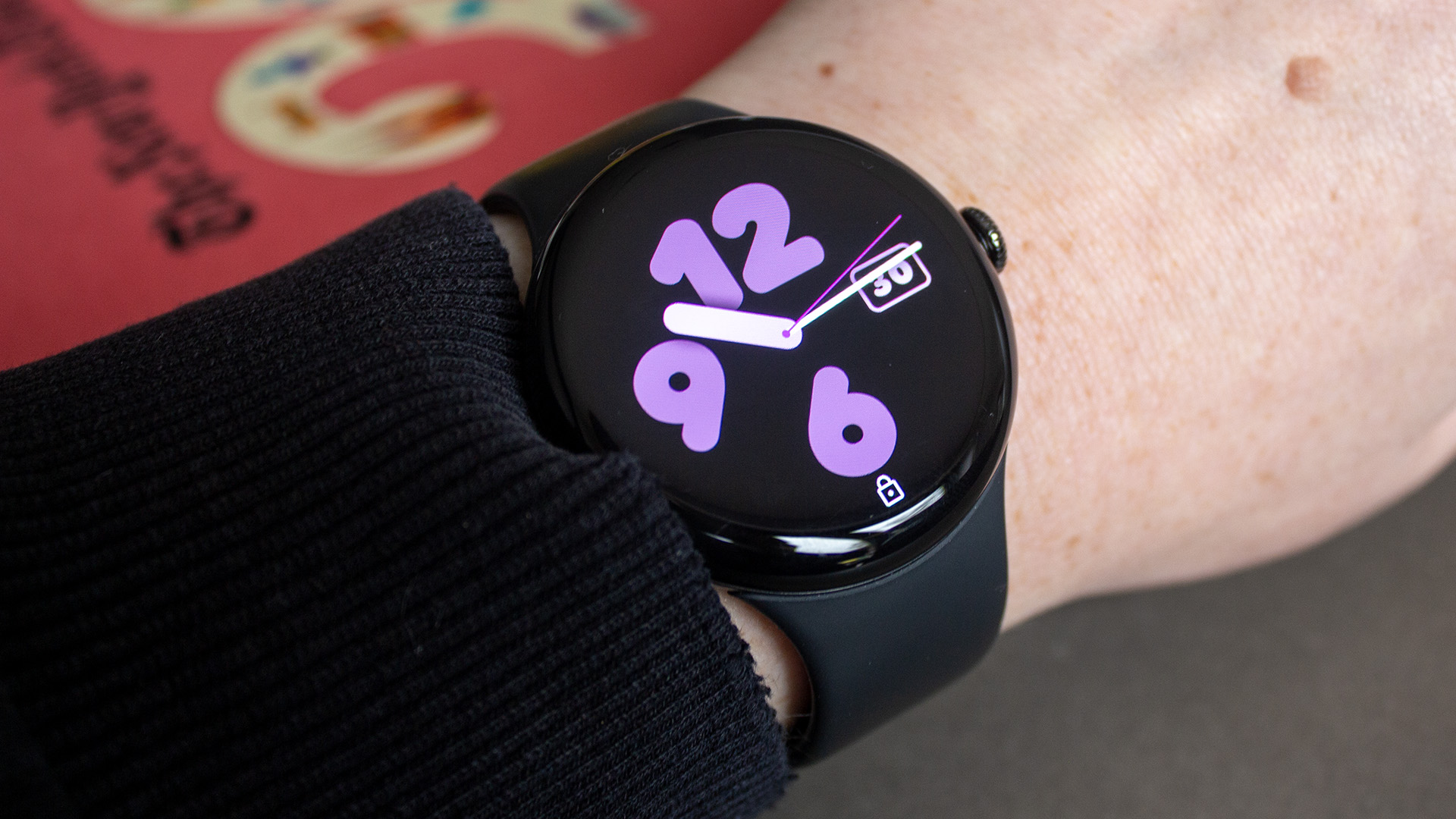 Your WearOS watch will get arguably the biggest app update in a generation soon
Your WearOS watch will get arguably the biggest app update in a generation soonThis could be a gamechanger
By Sam Cross Published
-
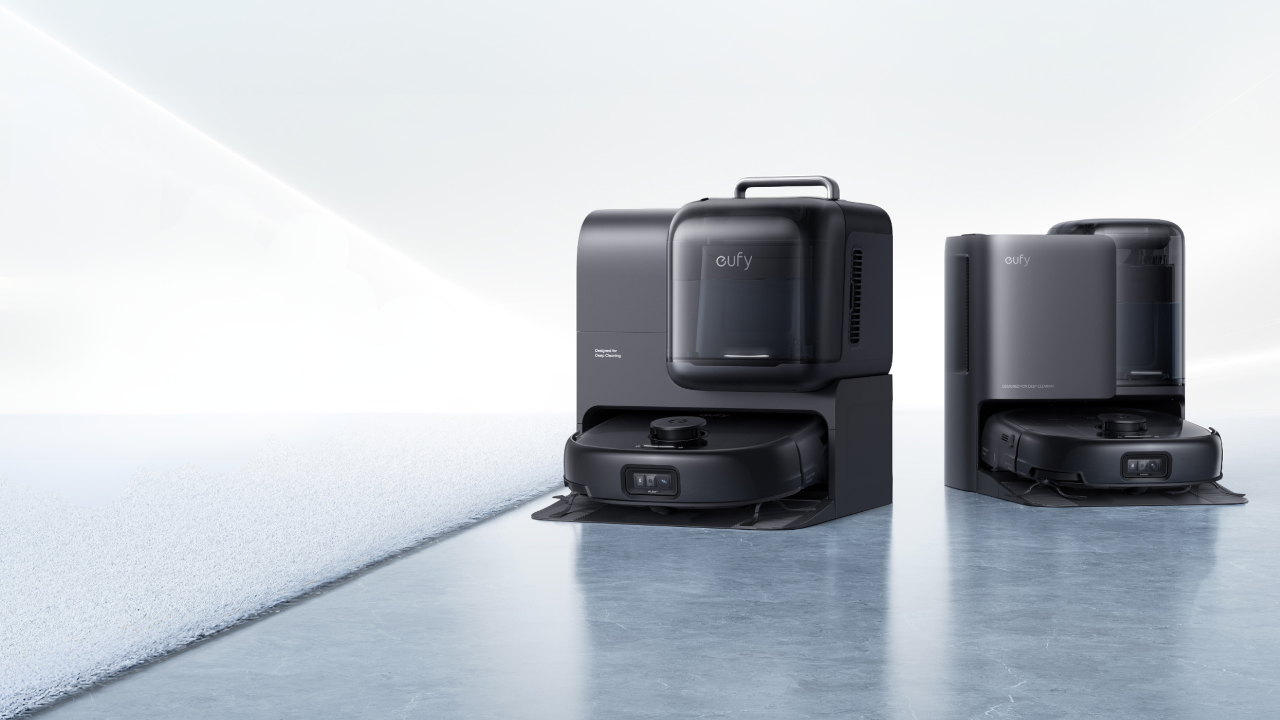 Eufy’s latest robot vacuum doubles as a portable deep cleaner for spot cleaning
Eufy’s latest robot vacuum doubles as a portable deep cleaner for spot cleaningA global first in home cleaning tech
By Lizzie Wilmot Published
-
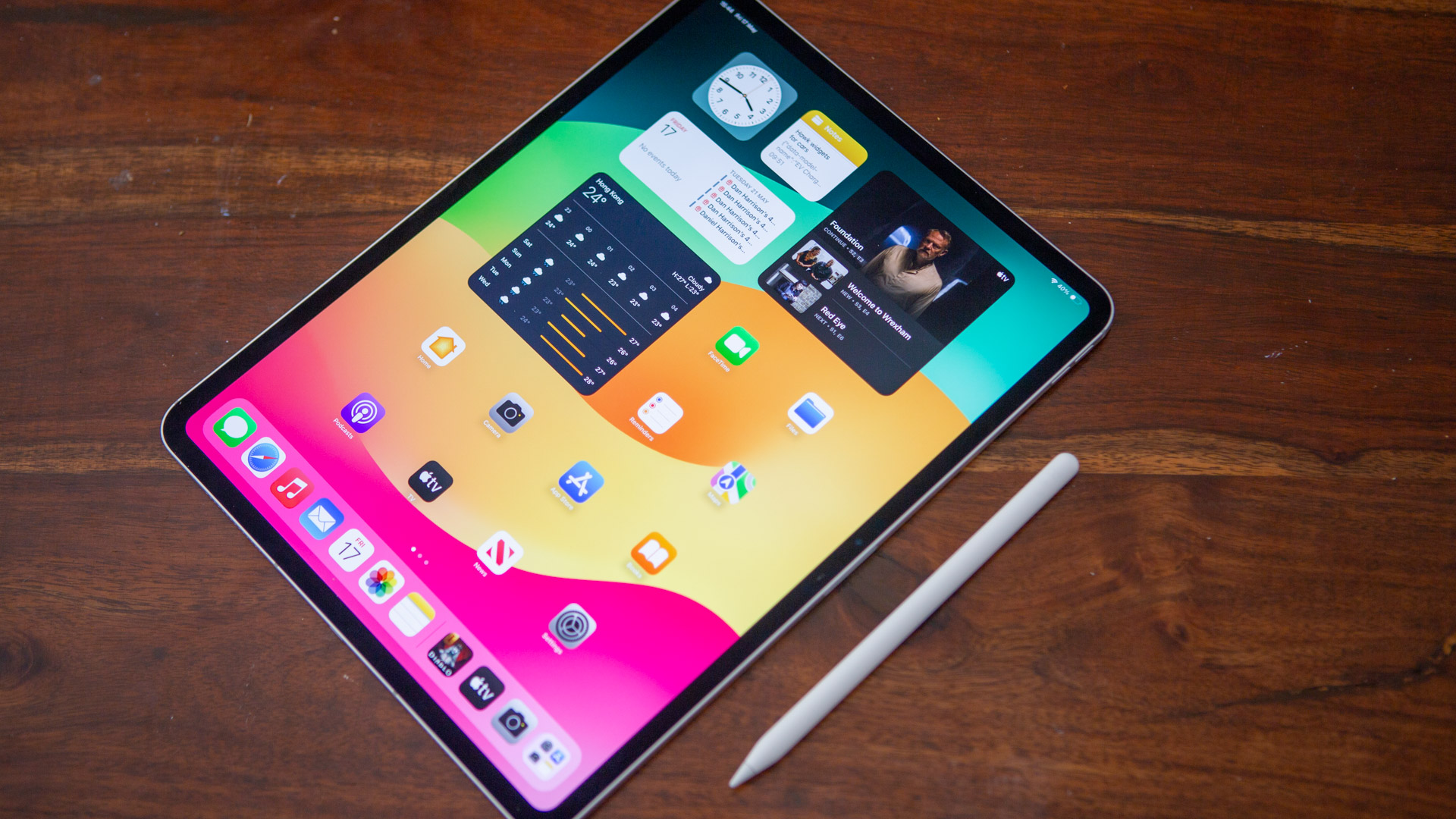 iPad reportedly getting major makeover and your current model could benefit too
iPad reportedly getting major makeover and your current model could benefit tooApple is said to be making a change that iPad power users have been wanting for years
By Carrie Marshall Published